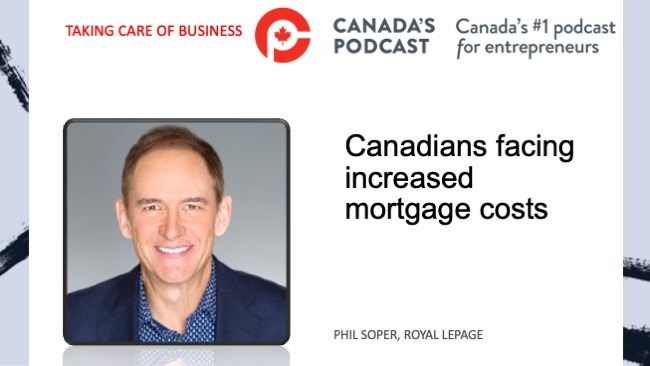Canadians’ pandemic savings are still growing—rising to about $350 billion as of Q3 2022, according to a report by RBC Economics.
But those savings continue to be unequally distributed, with higher-income earners socking away the lion’s share, it said.
Rising inflation and debt payments have already eaten into the more modest savings of lower-income households. That’s expected to continue as they borrow more to pay for essentials, added RBC.

Joslyn Pickens
“With a recession looming, the asymmetry of savings will lead to a more dramatic period of pain for lower income Canadians. While the savings stockpile among high-income earners is unlikely to be spent, lower-income households will continue to be squeezed by a higher cost of living,” said the report.
“In previous work, we found that Canadians had built a record amount of savings during the COVID-19 crisis. Thanks to a combination of government aid and fewer spending opportunities, household savings rose roughly $350 billion above pre-pandemic levels by the end of the third quarter of 2022.
“That pace slowed as government transfer programs faded and pandemic restrictions eased. But the pile of excess savings has yet to shrink. Chartered bank demand deposits (which allow immediate withdrawals) have started to decline. Yet instead of flowing to consumer spending, this money has shifted into term deposits (which lock away cash for longer terms but pay a bigger return due to higher interest rates).
“That means the post-lockdown resurgence in Canadian household spending has been funded entirely out of earned incomes. This was enabled by a rapid recovery in labour markets in the first half of the year, which offset the wind down of government aid.”
The report said the cost of living for Canadian households will continue to rise and a decline in inflation only means prices will grow at a slower rate.
“And the delayed impact of interest rate increases in 2022 will continue to push household debt servicing costs higher, tightening the squeeze on household finances. Our current projection is for debt payments to rise to a record 16% of household disposable income by the end of 2023, leaving less current income for spending,” said RBC.
“This dynamic will take the heaviest toll on lower income households—those with the smallest savings backstops. Indeed, rather than saving more during the pandemic, lower income households really just borrowed less. According to Statistics Canada, average savings per household among the lowest 40% of income earners were already negative in the first quarter of 2020. They fell another 12% below those levels by the third quarter of 2022 as the cost of living rose. By comparison, savings were up by 28% through the same period among the top 40% of income earners.”
The bank is forecasting a ‘moderate’ recession in the first half of 2023 as central bank interest rate hikes cool an overheating economy.
“The savings among high-income households is large enough—the equivalent of 4.5 years of pre-pandemic spending on food and restaurants—that consumer spending could prove more resilient than expected. But another surge in spending on discretionary purchases would also probably lead to higher inflation and interest rates—and potentially to a larger recession down the road. For lower income Canadians, much smaller cash savings buffers could mean a much more challenging year ahead,” it said.
 (Mario Toneguzzi is Managing Editor of Canada’s Podcast. He has more than 40 years of experience as a daily newspaper writer, columnist, and editor. He worked for 35 years at the Calgary Herald, covering sports, crime, politics, health, faith, city and breaking news, and business. He works as well as a freelance writer for several national publications and as a consultant in communications and media relations/training. Mario was named in 2021 as one of the Top 10 Business Journalists in the World by PR News – the only Canadian to make the list)
(Mario Toneguzzi is Managing Editor of Canada’s Podcast. He has more than 40 years of experience as a daily newspaper writer, columnist, and editor. He worked for 35 years at the Calgary Herald, covering sports, crime, politics, health, faith, city and breaking news, and business. He works as well as a freelance writer for several national publications and as a consultant in communications and media relations/training. Mario was named in 2021 as one of the Top 10 Business Journalists in the World by PR News – the only Canadian to make the list)
About Us
Canada’s Podcast is the number one podcast in Canada for entrepreneurs and business owners. Established in 2016, the podcast network has interviewed over 600 Canadian entrepreneurs from coast-to-coast.
With hosts in each province, entrepreneurs have a local and national format to tell their stories, talk about their journey and provide inspiration for anyone starting their entrepreneurial journey and well- established founders.
The commitment to a grass roots approach has built a loyal audience with over 120,000 downloads and thousands of subscribers on all our social channels and YouTube. Canada’s Podcast is proud to provide a local, national and international presence for Canadian entrepreneurs to build their brand and tell their story.
Advertising and Sponsorships: At Canada’s Podcast we are here to help you reach your communication objectives and get you results. If you are looking to build your brand, promote your products/services, announce an event, then you will want to reach our extensive data base of owners and entrepreneurs.
Contact sales at: robert@canadaspodcast.com and find out how we can make an impact on your bottom line with our sponsorship packages. Sponsors include: RBC Bank, The Cooperators Insurance, Silicon Valley Bank, eBay, Lethbridge Economic Development, VanHack, CBC Dragon’s Den, The Competition Bureau, The Vancouver Board of Trade and more.





